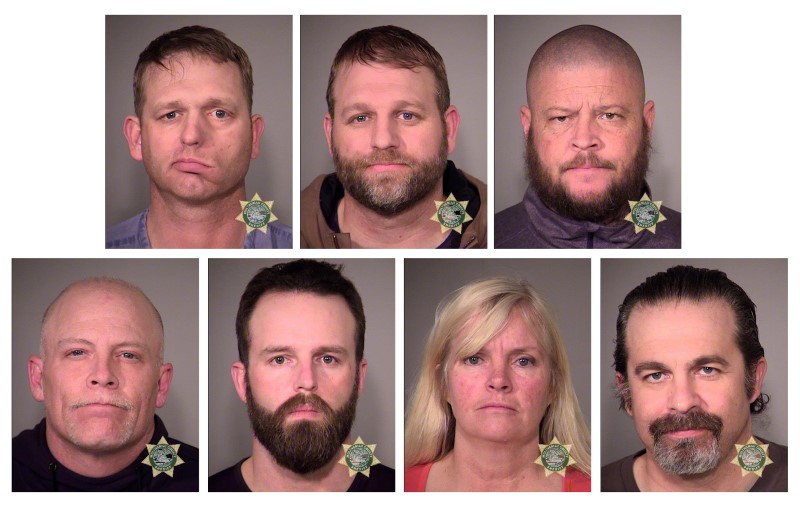
PORTLAND, Ore. (Reuters) – Armed protesters at a federal wildlife refuge in Oregon were exercising their rights to freedom of speech and assembly in a bid to expose the U.S. government’s illegal ownership and mismanagement of public lands in the West, lawyers for the defendants are expected to argue at trial on Tuesday.
Opening arguments are set for the morning at a federal courthouse in Portland, Oregon in the case of ranchers Ammon and Ryan Bundy and five other limited-government activists who led an armed 41-day takeover of the Malheur National Wildlife Refuge earlier this year.
The seven defendants are charged with conspiracy to impede federal officers, possession of firearms in a federal facility, and theft of government property. A jury was seated last week.
The takeover at Malheur was the latest flare-up in a decades-old conflict over federal control of millions of acres of public land in the West.
The Bundy brothers have been at the forefront of that movement and stood by their father, Cliven Bundy, at his Nevada ranch in a 2014 armed standoff with authorities over enforcement of federal grazing rights.
The Bundys began the Oregon standoff on Jan. 2 with at least a dozen armed men, sparked in part by the return to prison of two Oregon ranchers, Dwight Hammond Jr. and Steven Hammond, who set fires that spread to federal property near the refuge.
A spokesman for the U.S. Attorney declined to comment on the trial.

Inmates (clockwise from top left) Ryan Bundy, Ammon Bundy, Brian Cavalier, Peter Santilli, Shawna Cox, Ryan Payne and Joseph O’Shaughnessy, limited-government activists who led an armed 41-day takeover of the Malheur National Wildlife Refuge, are seen in a combination of police jail booking photos released by the Multnomah County Sheriff’s Office in Portland, Oregon January 27, 2016. Multnomah County Sheriff’s Office/Handout via Reuters
Lawyers for the Bundys and other defendants said they will argue, among other things, that the peaceful demonstration was an effort to draw attention to federal government overreach, and illegal control and mismanagement of public lands.
“The government has been squatting on this land for years, illegally and contrary to how (the U.S.) Congress intended,” Marcus Mumford, an attorney for Ammon Bundy, said in a telephone interview on Monday.
Matthew Schindler, a lawyer for Kenneth Medenbach, charged with theft of a government-owned Ford F-350 truck, said: “Federal control of public lands in the West is destroying the rural way of life, and that is what my client and others were trying to draw attention to.”
More than two dozen people have been charged in connection with the takeover, and a second group of defendants are scheduled to go on trial in February.
The conspiracy charge carries a maximum of six years in prison, a year more than the firearms charge, while the property theft charge carries a maximum of 10 years in prison, the U.S. Attorney’s Office said.
(Reporting by Courtney Sherwood in Portland, Oregon; Writing and additional reporting by Eric M. Johnson in Seattle)